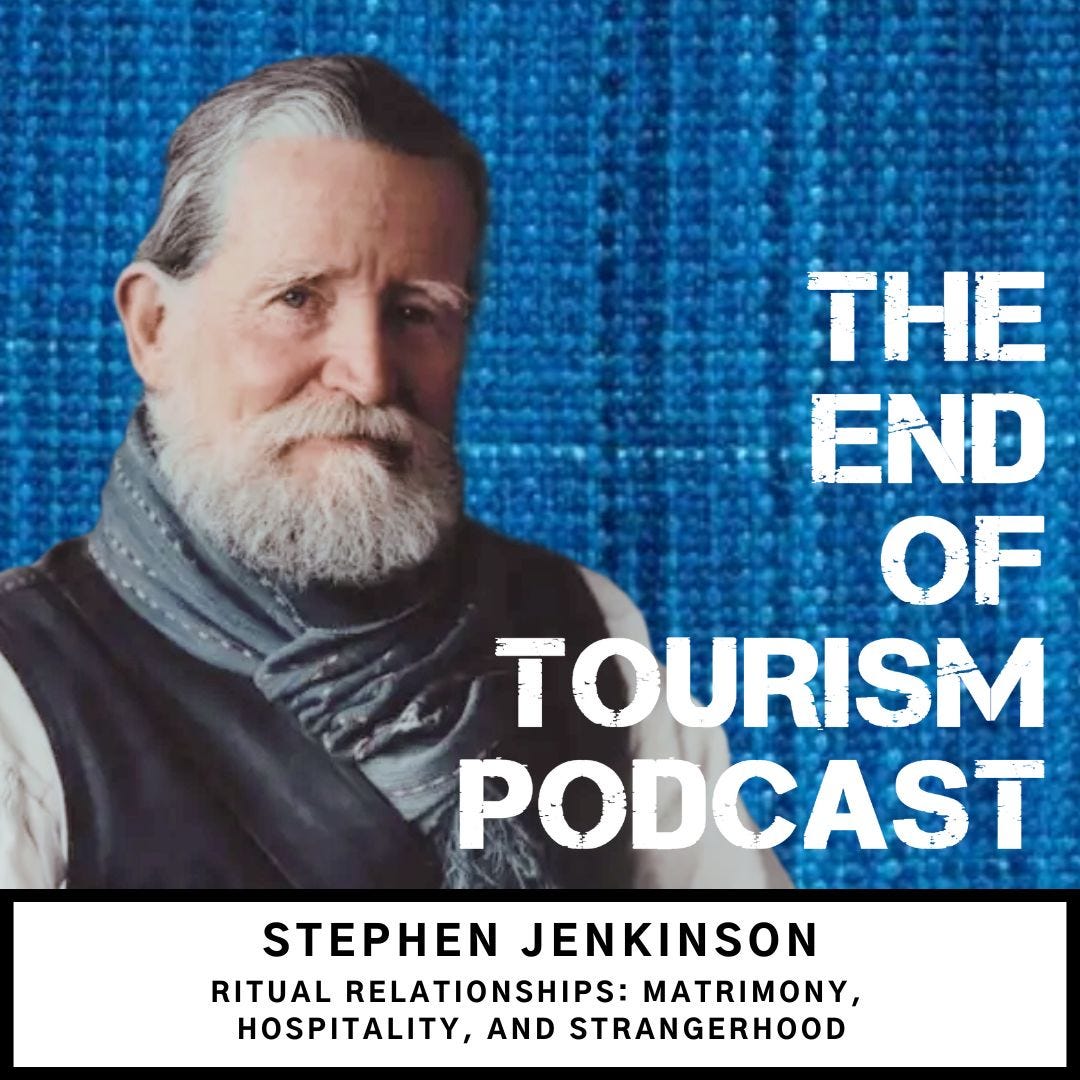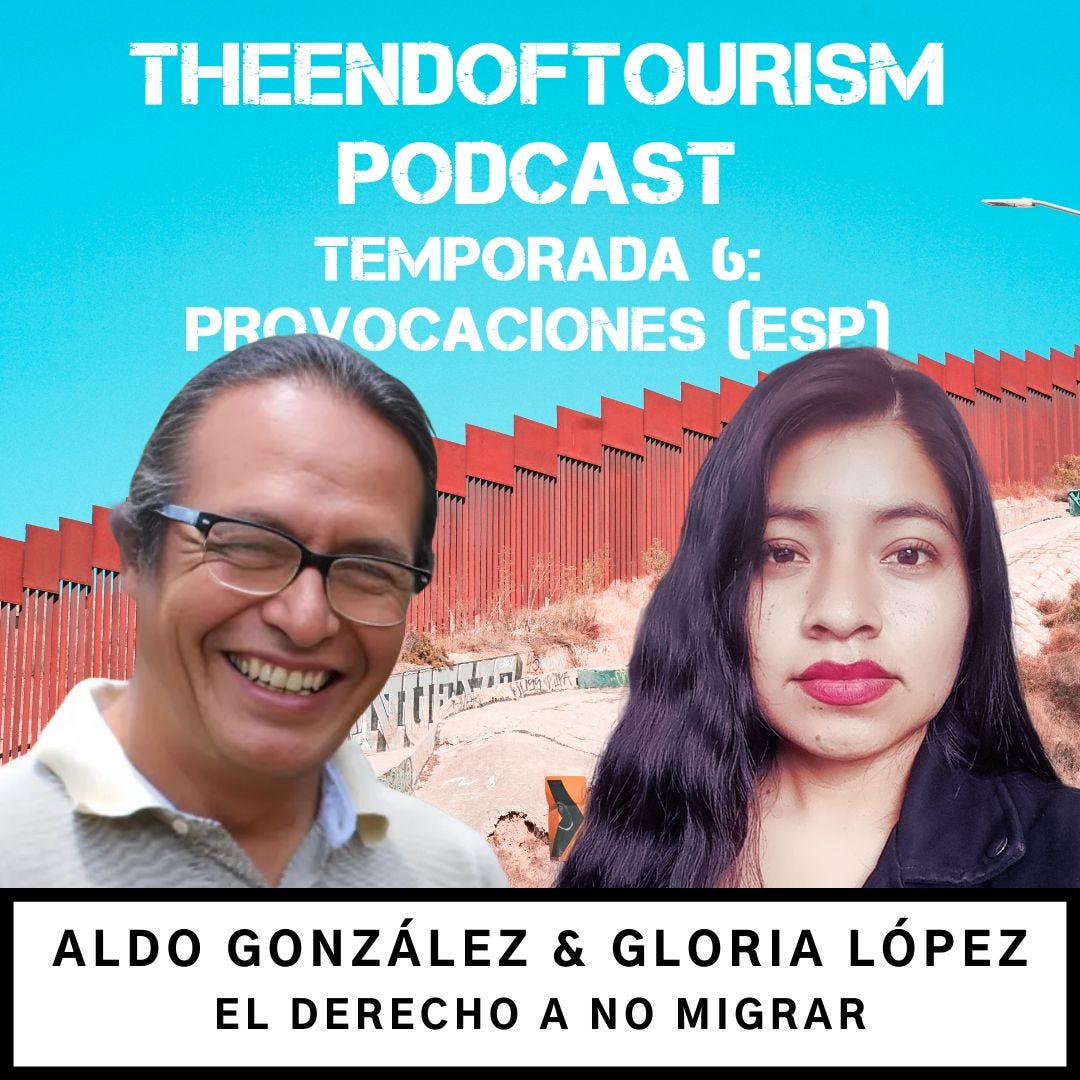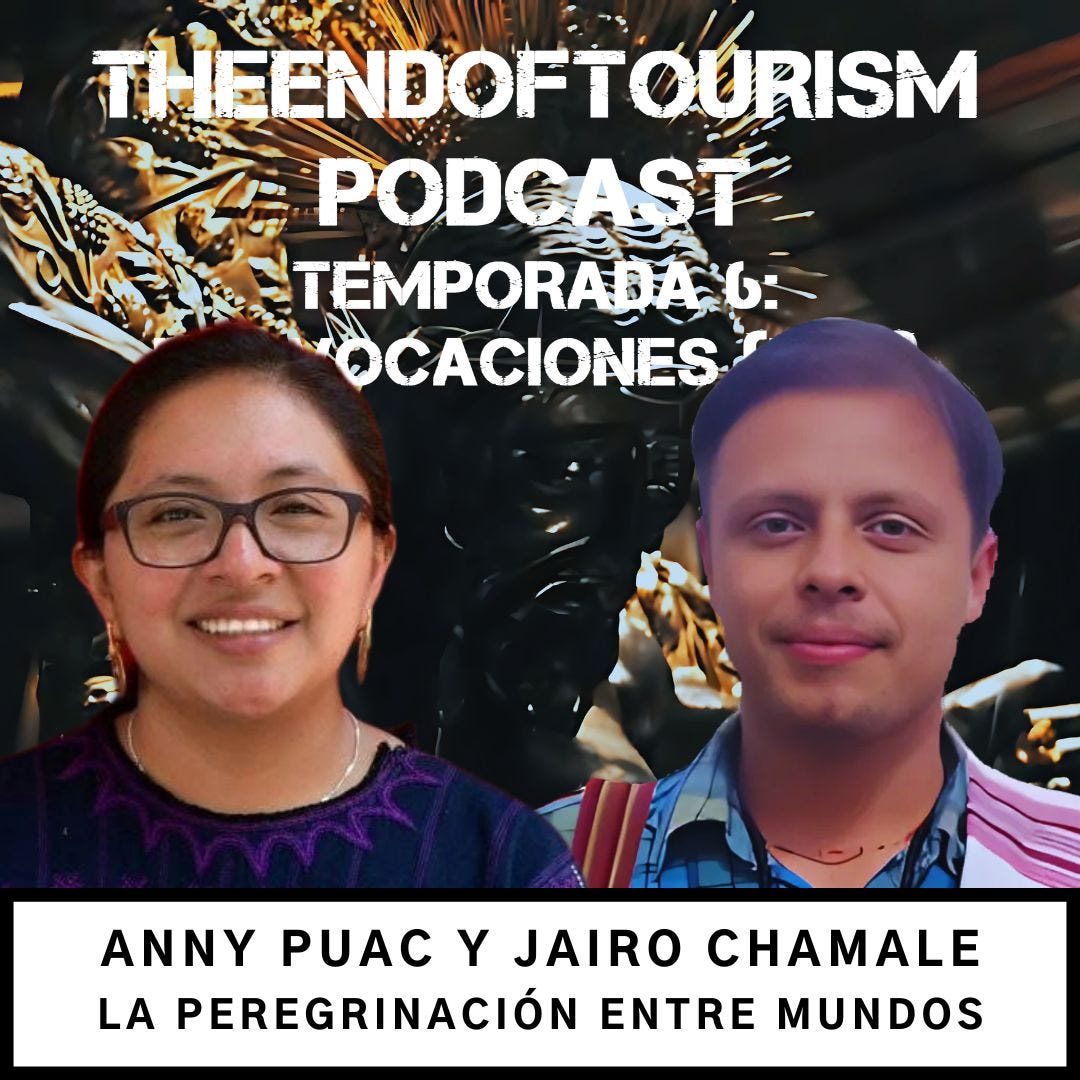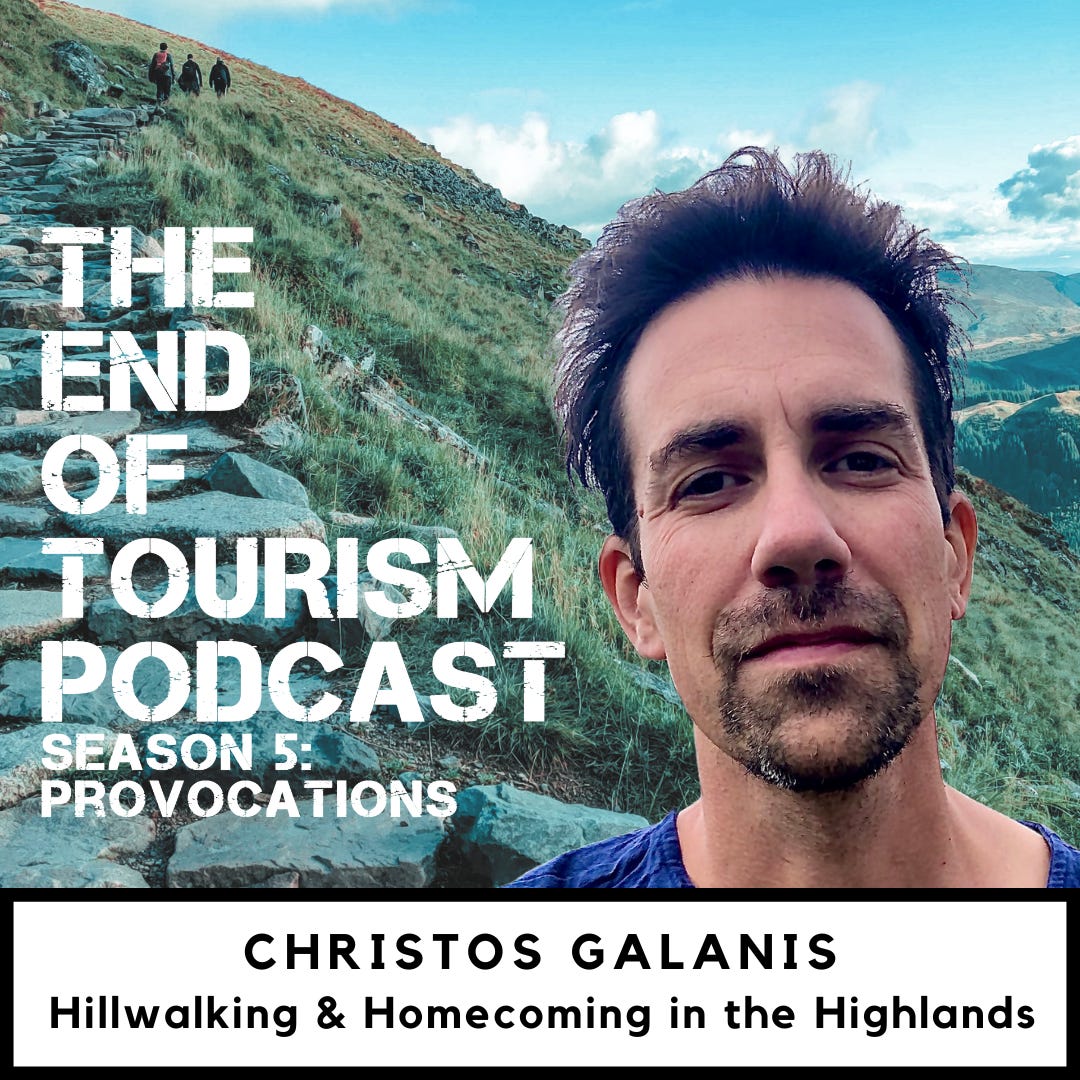S5 #2 | Composting Cultures of Disposability w/ Clementine Morrigan & Jay LeSoleil (F*****g Cancelled)
Description
On this episode, my guests are ClementineMorrigan.com and Jay Lesoleil of the F*****g Cancelled Podcast.
Clementine Morrigan is a writer and public intellectual based in Montréal, Canada. She writes popular and controversial essays about culture, politics, ethics, relationships, sexuality, and trauma. A passionate believer in independent media, she’s been making zines since the year 2000 and is the author of several books. She’s known for her iconic white-text-on-a-black-background mini-essays on Instagram. One of the leading voices on the Canadian Left and one half of the F*****g Cancelled podcast, Clementine is an outspoken critic of cancel culture and a proponent of building solidarity across difference. She is a socialist, a feminist, and a vegan for the animals and the earth.
Jay is a writer, artist and designer from Montreal and is the author of the Substack jaylesoleil.com and the zine series What Else Is There to Live For. Jay is also the co-host of F*****g Cancelled.
Show Notes:
Clementine & Jay’s Travels
The Nexus
Identitarianism and Identity Politics
Gentrification & Solidarity
How Nationalism Leaks into the Left
The Contradictions of Identitarianism
Freedom, Limits and Guesthood
Borders and Biomes
The Quest for Offline Communities
Radical & Reciprocal Hospitality
Authenticity
Homework:
Jay’s Substack (including Dumplings & Domination)
Transcript
Chris: [00:00:00 ] Welcome to the pod, Clementine and Jay. It's an honor to have you both here today. Each of your work both individually and together has been a great influence on mine and definitely eye-opening and if I can say so much needed in our time. So thank you for joining me.
Jay: Thank you, man. Thanks for having us.
Clementine: Thanks for having us.
Chris: So, I'd like to start, if we can, by asking you both where you find yourselves today and what the world looks like for you through each of your eyes.
Jay: Well, we both find ourselves in Montreal which is where we live. I was working in homeless shelters for years and then I got let go cause I tried to unionize the one I was working at. Actually I succeeded in unionizing the one I was working at. And they mysteriously did not have any money to renew my contract after that.
And yeah, so I'm writing and I just launched a new solo podcast about like world history outside of the West. And so I've been working on that. It's called [00:01:00 ] dumplings and domination, which are two things that human beings love. And Yeah, so that's, that's what I'm up to.
Clementine: Yeah, so I'm also, yeah, I find myself in Montreal, in the snow, and I guess, relevant to the topics of this podcast one of the things I'm grappling with now is my perpetual existence as a unilingual anglophone in the city of Montreal, which is a bilingual city, but it's a French city, like.
Actually. And I'm planning on having a child and I'm planning to have this child here. And so I'm facing the dilemma of being like an English speaker whose child is not going to just be an English speaker. And so I really need to learn French, basically. So this is my struggle, because being 37 and only speaking one language my entire life, it's like super hard to learn another language.
And I've really, really struggled. A couple times I've made an attempt to learn French, and it's like really [00:02:00 ] frustrating, but that is one of the things I'm grappling with. I feel like it's relevant to the podcast, because in many ways, even though I've lived in Montreal for like almost seven years, there's a way in which I still am kind of like a tourist here, because I haven't learned the language.
So, will I complete my transition into becoming Quebecois?
Chris: Yeah, maybe so.
Jay: Only time will tell.
Chris: I was just reading this biography of Ivan Illich, who's like was an Austrian philosopher and he said that like trying to learn a new language, especially if you're immersed in the place is the greatest measure or degree of poverty that one can undertake because of the degree of dependence that they have on other people and not just dependence, but like dependence on their hospitality, assuming it exists in order to, you know, be able to understand what you're saying and communicate in that way.
Clementine: Like Montreal is interesting because at least in the neighborhood that I live and in many places in [00:03:00 ] Montreal, it's functionally bilingual. So it's not like learning in an immersive environment as if you went somewhere and everybody's speaking that language.
So you kind of just have to or you won't be able to communicate. Like you have to learn here. You know, when I'm fumbling around trying to speak French, people just start speaking English to me because even if they're a francophone, like, at least in the neighborhoods where I live, most people are bilingual, and they speak better English than I do French, so they will accommodate me, which is polite of them, and also, It does not help me learn, you know?
Jay: Whereas the government of Quebec will not accommodate you.
Clementine: No, the government will not accommodate you at all. And so, like, it's only in circumstances where, like, I desperately need to understand where, like, there's no, there's absolutely no accommodation. So.
Chris: And that kind of touches on my next question, which is, you know, in terms of the travels that you two have.
Has there been that degree of poverty elsewhere? I mean, I imagine you might have traveled to other places maybe in Canada, maybe elsewhere. [00:04:00 ] What have your travels taught you each, if anything, about the world, about your lives, about culture?
Jay: Yeah. I had kind of an unusual relationship with travel.
Because as a kid, I moved to a different country every like three or four years cause of my parents work. And so, yeah, I grew up like in Asia and not just like dipping into a place and then like leaving right away but spending years of my life in each country. Right. And like learning the languages and stuff.
And so, yeah, I think that was a quite an unusual way to kind of experience travel as a kid. And I think that it did definitely have a lot of impact on me. Because I think that travel in general, I think is a wonderful and amazing thing, you know, which is why people like to do it. And it can be really profound for your mind and your understanding of the world and of other people, you know but obviously there's travel and then there's [00:05:00 ] travel.
I feel really grateful that I was able to see so much of the world by living there, you know and I think that it was really important for me in my kind of embodied understanding that other people and other parts of the world are, you know, just as real and just as important and just as embedded in history as I am and as like the people are in my passport country, which happens to be Canada, you know?
Clementine: Yeah. I've traveled a little bit, but I think for me, like, When I was young, I was too crazy to travel, you know, and I truly mean that, like I have complex PTSD and like as much as my life was so chaotic and like really, like, you know, on F*****g Cancelled, Jay and I talk about how we're both alcoholics in recovery, like, When I was drinking, I always wanted to be someone who traveled, and my life was very, like, chaotic and full of violence and danger and all those types of things, but the PTSD made it really hard to do [00:06:00 ] anything because I was always scared, you know and being a woman traveling... like, in recovery, I've wanted to try to travel more, but the combination of one being a woman traveling alone, it does come with certain risks to it.
You're more vulnerable in certain ways and then add that to the PTSD. It's like... it's super anxiety producing, you know, so it's something that I've done a little bit but not as much as I would have liked to and I guess we'll see like what the future holds with that. One thing is is that like I learned to drive pretty late.
I learned to drive in my 30s and once I learned to drive going on road trips was actually a way that really opened up travel for me because having my car with me gave me this sense of like safety, basically, that I could leave a situation like I was there with my car. So I had like the independence to like not be dependent on like strangers because I was afraid of them basically.
But we went on a podcast tour last [00:07:00 ] year and drove like all across the United States in like a month and like drove down to like Arizona and like back up the West c
























